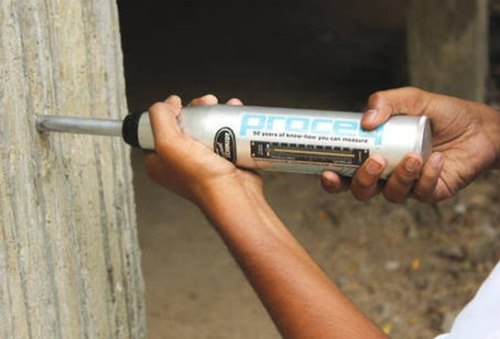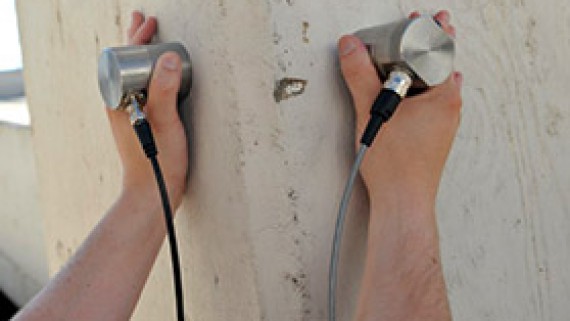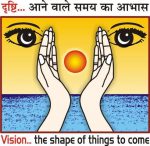VIT Aligarh has the following well equipped laboratories which provide practical instruction to undergraduate students and facilities for post-graduate training and research work.

Survey Lab
Surveying laboratory experience helps the students to deal with real engineering problems in surveying and mapping operations. Surveying laboratory is equipped with traditional and modern surveying and leveling equipments to carry out various field exercises.
Following exercises are being carried out under Surveying Labs
- Chain and cross staff survey
- Compass Survey
- Chain and Compass survey
- Plane Table survey
- Theodolite Survey
- Total Station and GPS Survey
- Etc


Concrete Laboratory
his lab enables students to carry various experiments regarding compressive strength of concrete, tensile strength of concrete, workability test, design mix, modulus of rupture of concrete. All these experiments intended to determine the quality of concrete.
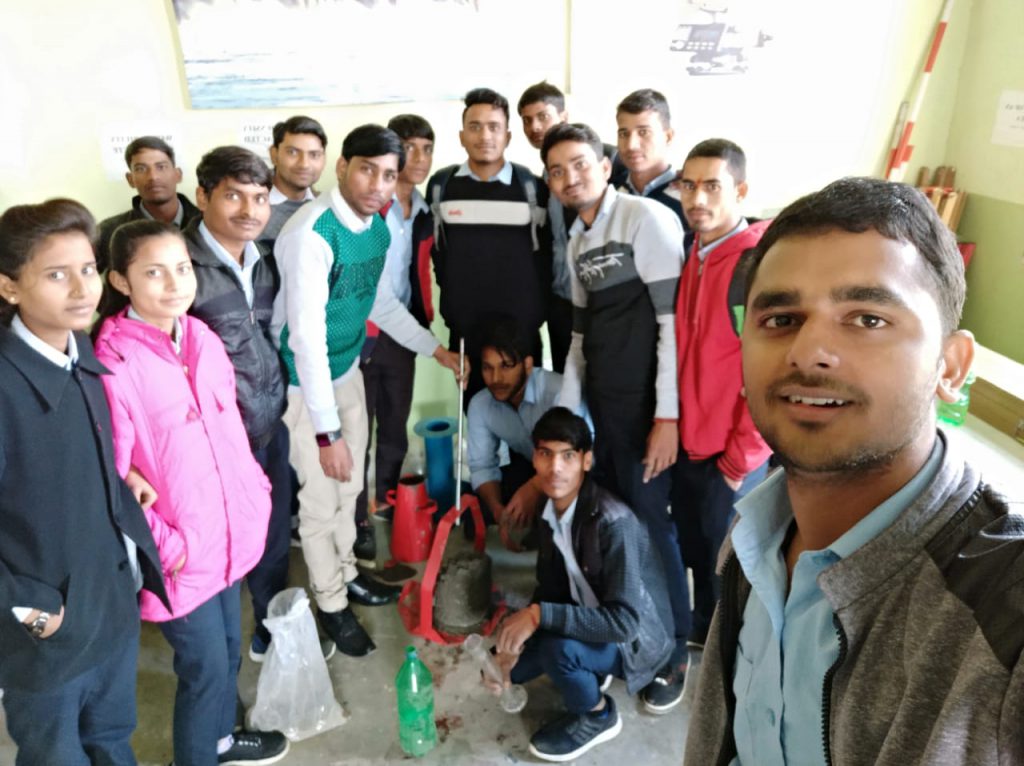
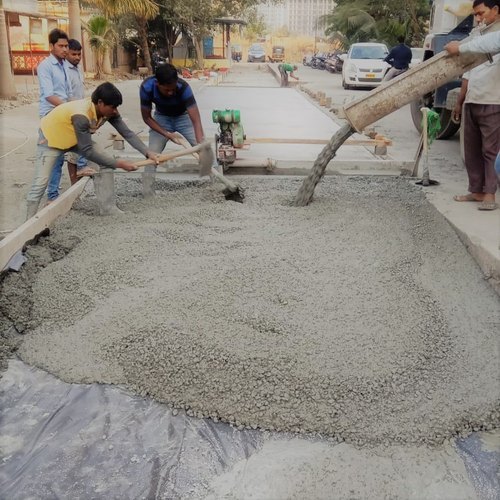
Solid Mechanics Lab
In Solid Mechanics Laboratory, you will have the opportunity to assemble and test a variety of structural elements. You will subject them to loading, and observe and measure their behavior using both crude and relatively sophisticated instruments.Study force/displacement, stiffness behavior of structural elements.
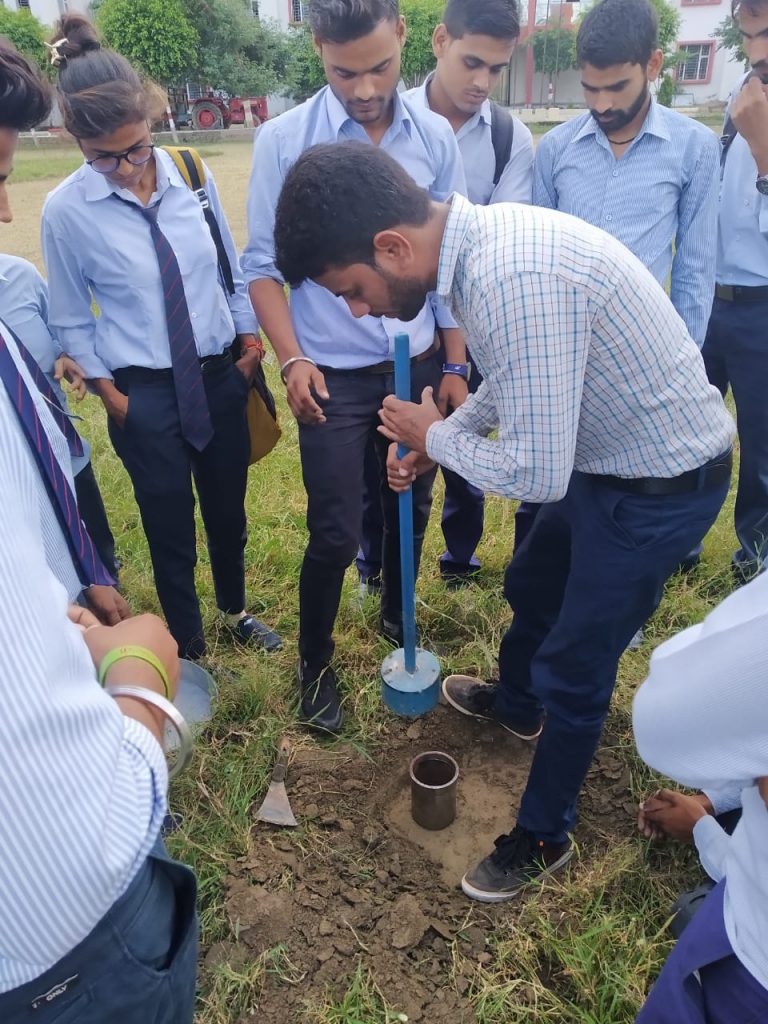
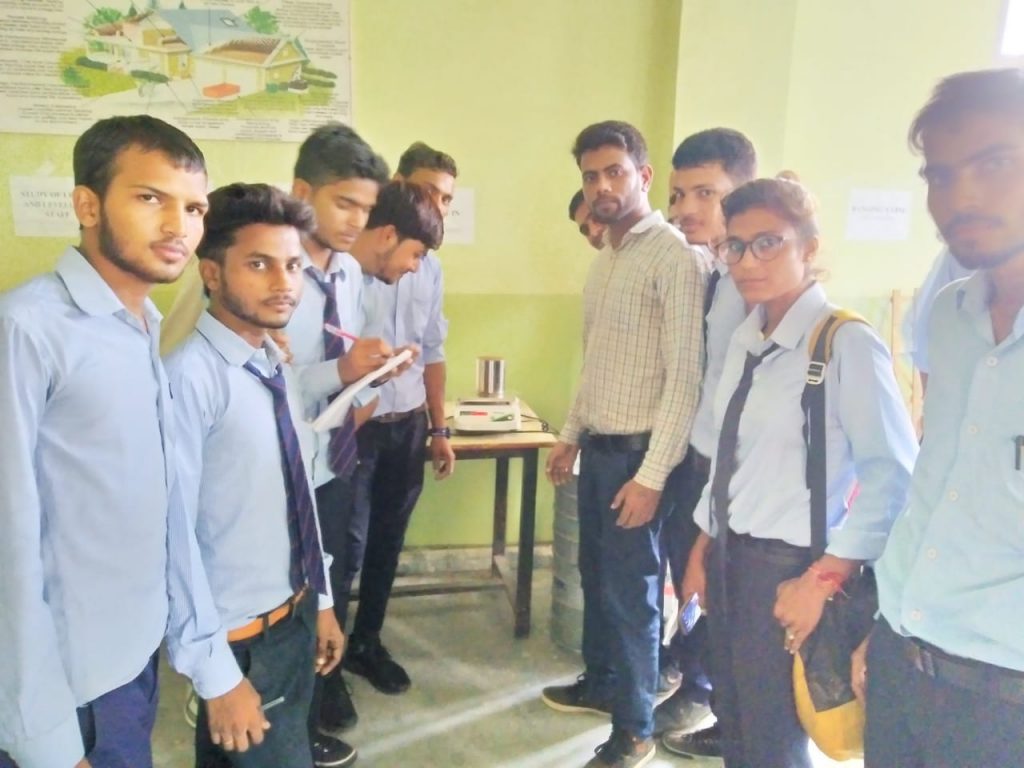
CAD LAB
There are various types of drawings in different fields of engineering and sciences.In the field of civil engineering, plans and layouts of the buildings are prepared. The use of CAD process provides an enhanced graphics capability which allows any designer to conceptualize his ideas Modify the design very easily Perform animation Make design calculations Use colors, fonts and other aesthetic features
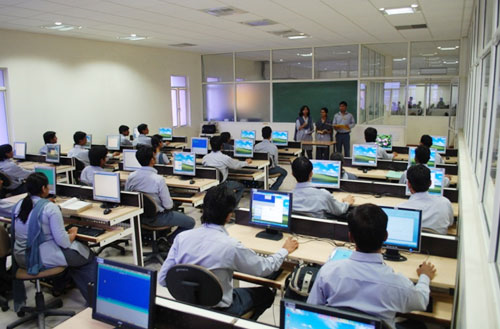
TRANSPORTATION ENGINEERING LAB
This lab is used for research and teaching in the fields of rigid and flexible pavements and testing pavements materials and structures. Several instruments exist in the lab for conducting materials characterization tests.
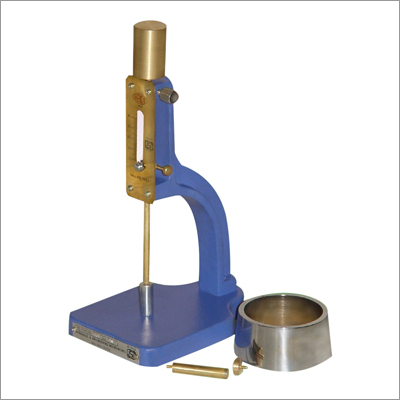
ENVIRONMENTAL ENGINEERING LAB
The field of environmental engineering lab is broad, but the common element is that environmental engineers investigate and solve problems at the interface between humans and their environment. Environmental engineers work to make water safe to drink, properly treat and dispose of wastes, improve air quality, promote recycling and solid waste management, and clean up contaminated air, land, and water. Environmental engineers are also increasingly addressing issues of sustainability, energy, and resource recovery. The problems tackled by environmental engineers range from local to global.

Hydraulics & Hydraulic Machine Lab
the Hydraulic Machines laboratory is equipped with a number of equipment and experimental setups to study the fundamentals and applied aspects of fluid mechanics and hydraulic machines. The setups are used for calibration of flow measuring devices such as venturimeter , orifice meter, notches, water meter, Rota meter etc. used in channels and pipes and Losses in pipes by major and minor loss apparatus. Measurements of critical Performance parameters like efficiency, flow rate etc. of various hydraulic machines such as turbines, pumps are also measured in this lab.
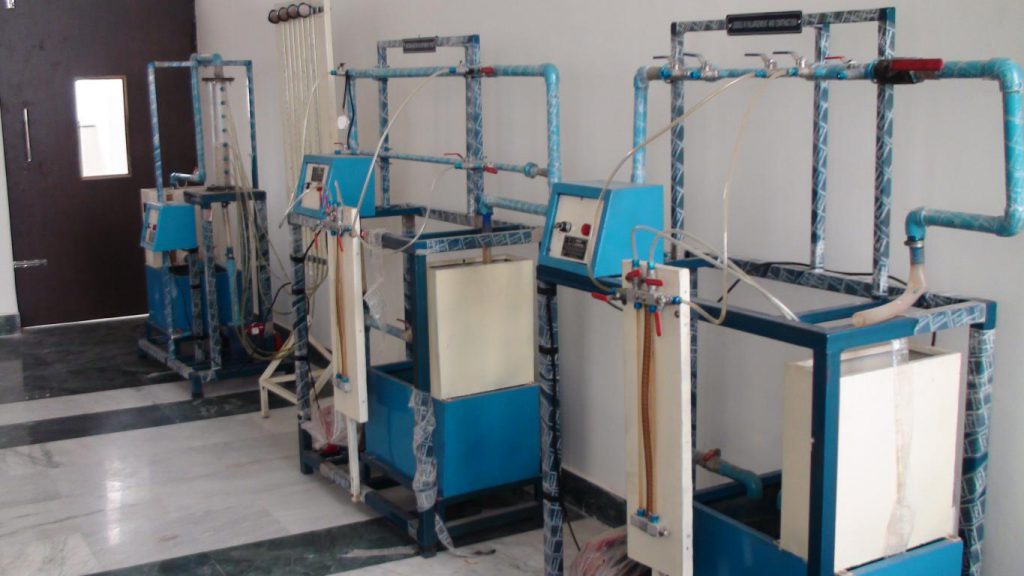
Structural Engineering Lab
The Structural Engineering Laboratory facilitates productive innovation and learning. The newly renovated teaching lab provides students with a state-of-the art practical learning space with the essential facility needed to introduce them to the fundamentals of structural engineering.
The Structural Engineering Laboratory is a large space incorporating all the facility needed for advanced research and teaching purposes.
Non Destructive Testing Laboratory
Description-Nondestructive Testing (NDT) is a varied group of test and inspection processes used to detect surface and sub-surface defects or inconsistencies in test samples, without affecting the future operating performance of the inspected parts. This category of test methods is also known as NDT Testing, Non Destructive Examination and Non Destructive Evaluation.
